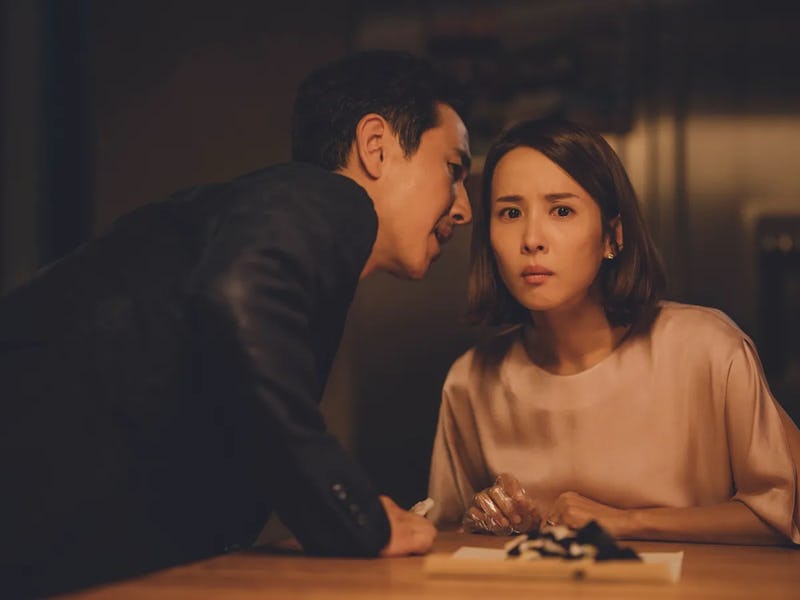It feels like eons since Jane Fonda opened an envelope on the stage at the Dolby Theatre in Hollywood, took a deeply dramatic pause, and, with a slight smile and a benevolent gaze, uttered the word, “Parasite.” But it was just five years ago that Bong Joon-ho’s decade-defining crime thriller won the Oscar for Best Picture — a history-making win that opened the floodgates for Korean cinema to take the global stage, and a rare high for an awards show that seems like it’s becoming more infuriating by the second. So perhaps there’s no better time to revisit Parasite, especially as Bong Joon-ho prepares to finally release his long-anticipated follow-up.
Parasite follows the impoverished Kim family, who live in the slums of Seoul. When the son, Ki-woo (Choi Woo-shik) gets the unexpected opportunity to tutor the daughter of a rich Park family, he and his family seize the chance to better their circumstances. Soon, through a series of surprisingly elaborate heists and scams, the entire family manages to get themselves under the employ of the Parks: the daughter, Ki-jung (Park So-dam) is the youngest son’s art therapist; the mother Chung-sook (Jang Hye-jin) is hired as the housekeeper; and the patriarch Ki-taek (Song Kang-ho) is brought on as chauffeur. But not satisfied with being a typical eat-the-rich satire, Bong’s film orchestrates a jaw-dropping rug pull two-thirds of the way through — one that is so audacious and earth-shattering that it still feels a little unbelievable, five years later.
But the power of Parasite isn’t in its shocking twists or its genre-defying turns. It’s in the deceptively nuanced way that it navigates the eat-the-rich genre that it has both defined and transcended. Because of its wholly entertaining first half — in which its black-comedy stylings give way to a heist caper — Parasite seems to revel in its law-breaking (or, at least, law-bending) Kim family, who are quick to take advantage of the naive rich family. But once its structure-breaking twist takes place, Parasite’s true meaning becomes clear. The clouds part, literally, and it’s revealed to us exactly what Bong Joon-ho thinks about how the iron grip of capitalism throttles the necks of both the poor and the wealthy.
The impoverished Kim family.
That’s why it’s funny when, half a decade later, there are still debates over who the parasite of the movie actually is. Is it the poor Kim family, who scam their way into the good graces of the wealthier Park family? Or is it the Park family, who are helpless without the services of the Kims, but turn up their nose at them during their time of need? The answer is, clearly, the system that turns poor and rich against each other in bloody shocks of mayhem.
Capitalism makes ugly parasites of all of us. Bong Joon-ho’s film only darkly reminds us of that — but it has such fun while it does.
